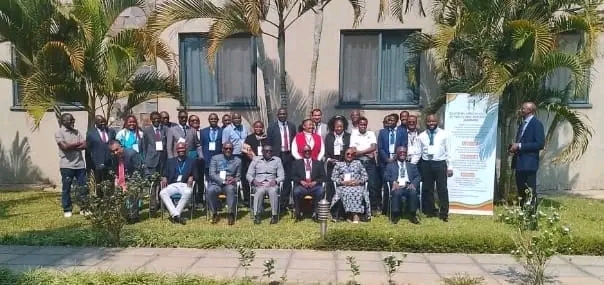The Copperbelt Province recently played host to a landmark symposium exploring the impacts of global geopolitical transformations on Zambia’s development path.
Organized by the Southern African Institute for Policy and Research (SAIPAR), in partnership with the Ministry of Foreign Affairs and International Cooperation (MFAIC), the event brought together key stakeholders from government, civil society, academia, and the private sector.
Copperbelt Province Permanent Secretary Lazarous Mwanza hailed the event as a critical platform for inclusive policy dialogue. He emphasized that with the Copperbelt’s strategic position in mining and industrial development, the region is uniquely exposed to shifts in international trade, investment, and technological innovation.
“These geopolitical changes are not abstract; they affect trade routes, investor confidence, and the pace of innovation, all of which directly impact livelihoods here in the Copperbelt,” Mwanza stated.
He further urged policymakers and stakeholders to align provincial strategies with emerging global realities, encouraging innovation that capitalizes on international changes for the benefit of local communities.
Mwanza also praised the diverse mix of voices present at the symposium, describing the discussions as reflective of Zambia’s ambitions and grounded in its current socio-economic context.
SAIPAR Associate Director Caesar Cheelo echoed this sentiment, applauding the input of various experts including Economics Association of Zambia (EAZ) Vice President Mbanji Milambo, AU ECOSOCC Programme Officer Dr. Raj Chintaram, Zambia Association of Manufacturers (ZAM) President Ashu Sagar, International Relations Expert Ambassador Lazarous Kapambwe, Center for Policy Dialogue Board Chairperson Dr. Neo Simutanyi, Civil Society and Governance Expert Annie Mbewe-Anamela, as well as several representatives from academia, business, and civil society.
Cheelo delivered a sobering analysis of how recent shifts in U.S. foreign aid and trade policy are reverberating globally, particularly for countries like Zambia that are heavily reliant on external support.
“Cuts to programs like USAID and broader restructuring of U.S. aid are reshaping the development finance landscape,” he warned. “Countries that have long depended on this support for sectors like health and education must now rethink their domestic strategies.”
The symposium also highlighted rising protectionism in the United States, with new trade barriers threatening African exporters—especially those supplying goods to American markets. Cheelo stressed the need for African economies to adjust their trade frameworks and anticipate future disruptions.
“Increased U.S. protectionism is forcing a reassessment of Africa’s export strategies. We must show resilience and pursue diversified partnerships,” Cheelo said.
He called on Zambian institutions to adopt strategic foresight and adaptability, building robust systems capable of withstanding external shocks.
Cheelo commended the thoughtful contributions from participants across civil society organizations (CSOs), business associations, academic institutions, and diplomatic circles, emphasizing that the symposium should serve as the starting point for a long-term national conversation.
“This is not the conclusion—it’s the launch of a structured and ongoing dialogue that will inform Zambia’s global positioning and shape strategic responses to an evolving world,” he concluded.








